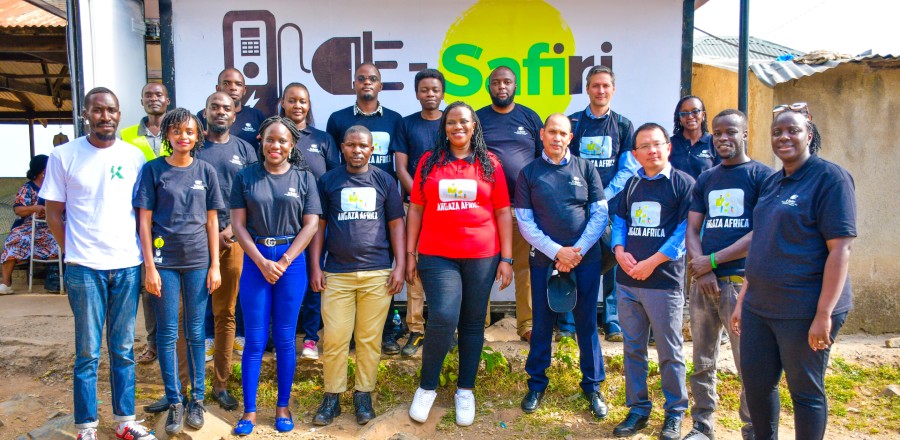Revolutionising mobility in rural Kenya

As the world focuses on implementing sustainable solutions to tackle climate change and foster equitable development at COP29, Glasgow Caledonian University is contributing with innovative projects that resonate with these global goals.
The Sun-Run initiative, spearheaded by researchers from our School of Computing, Engineering and Built Environment, aims to transform transportation and energy accessibility in rural Kenya, embodying the conference’s emphasis on sustainability, gender equality, and community empowerment.
Backed by funding from Partnership for Green Growth (P4G), the Sun-Run project targets the critical issue of inadequate access to electricity in many rural African communities. This lack of infrastructure has profound economic and social consequences, particularly for women, who frequently shoulder the burden of transporting goods over long distances, often at personal risk and economic disadvantage.
Recognising the intertwined nature of transportation, energy, and gender equality, the Sun-Run project delivers a holistic solution that leverages renewable energy and innovative business models. At the core of this initiative is the deployment of electric motorcycles and tuk-tuks powered by solar energy. These vehicles offer a sustainable and cost-effective alternative to traditional fossil fuel-powered transportation, which is both expensive and harmful to the environment.
Glasgow Caledonian’s approach extends beyond technology to include social empowerment through the introduction of a Pay-As-You-Go (PAYGo) model. This system allows community members, particularly women, to lease electric vehicles and pay for fully charged batteries as needed. By integrating affordable transportation with sustainable energy solutions, the project addresses gender disparities while promoting economic independence and entrepreneurship among women in rural Kenya.
The impact of Sun-Run is already visible with the installation of the first pilot station in Dunga Beach, Kisumu County. This initial phase signals the beginning of a larger transformation aimed at establishing a more inclusive and environmentally friendly transportation network across Kenya. The project is set to expand its reach with ongoing support from P4G and other international partners, aiming to increase the number of electric vehicles and solar-powered charging stations in more communities across the country.
Key partners in the project include Kenyan SMEs E-Safiri and Kiri-EV, which specialise in electric mobility solutions, as well as Sustainable Transport Africa, an NGO committed to promoting eco-friendly transportation systems.
Dr Roberto Ramirez-Iniguez, Principal Investigator of the project, highlights the alignment of Sun-Run with COP29’s values: “The Sun-Run project is a significant milestone in our collective effort to combat climate change and promote sustainable development. By harnessing renewable energy and embracing inclusive business models, we are addressing transportation challenges in rural areas while fostering economic empowerment and gender equality. As we continue to expand, this project serves as a beacon of hope for a more sustainable and equitable future.
“By promoting renewable energy, reducing emissions, and creating new economic opportunities, the Sun-Run project exemplifies how academic research and international collaboration can deliver meaningful change on a local level — demonstrating how institutions like Glasgow Caledonian University are crucial partners in the global fight against climate change, and directly supporting the values championed at COP29.”
